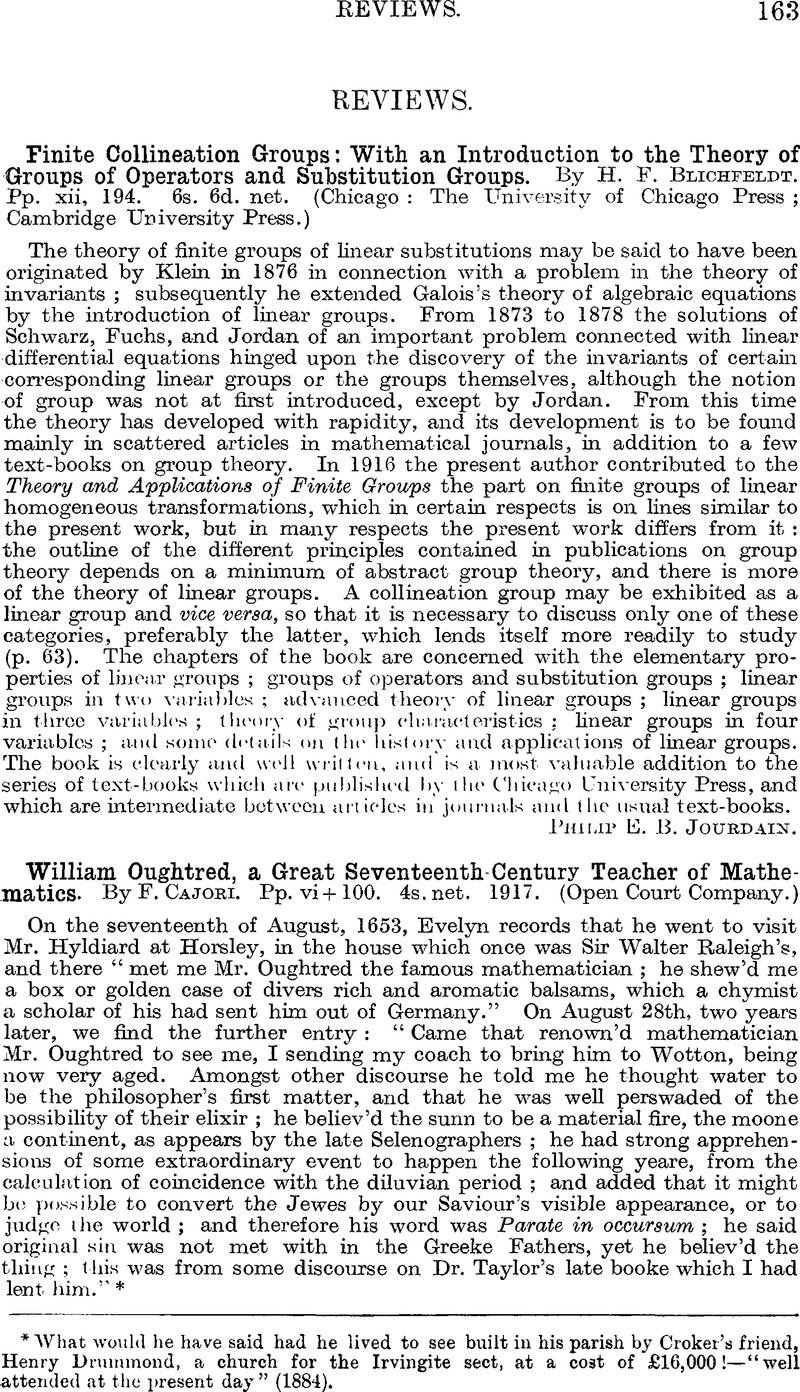Published online by Cambridge University Press: 03 November 2016

page no 163 note * What would he have said had he lived to see built in his parish by Croker's friend, Henry Drummond, a church for the Irvingite sect, at a cost of £16,000 !— “well attended at the present day” (1884).
page no 164 note * “To his worthy friend Master Evelyn, upon his translation of Lucretius.”
page no 164 note † Hollar painted, in 1666, the portrait of “Elias Allen the Mathematician.” It would be interesting to learn something of Elias.
page no 165 note * v. Grant, Hist. of Phys. Astr. p. 301.
page no 166 note * Colorado College Publications. Gen. Ser. 47 (1910), 84 (1915); Nature, 1909, vol. 82, p. 267; History of Logarithmic Slide Rule, 1909, p. 14 (N. York).
page no 166 note † “Practice multiplying simple numbers; ask nobody to help you, and you will rapidly get familiar with and fond of the slide rule … . Instructions are of no use. Find all this out for yourself.”—Perry, Practical Mathematics, 1907, p. 11. “Much the best way of beginning to use the sliding rule is not by working given questions, but by setting the slide at hazard, and learning to read the questions which are thus fortuitously worked.”—De Morgan, Slide, or Sliding Rule, P.C. xxii. (1842).
The appeal to hazard is not new. Recorde took the random replies of “suche children and ydeotes as happened to be in the place,” and astounded his friends by getting right answers.—De Morgan, Recorde, P.C. xix. p. 331.